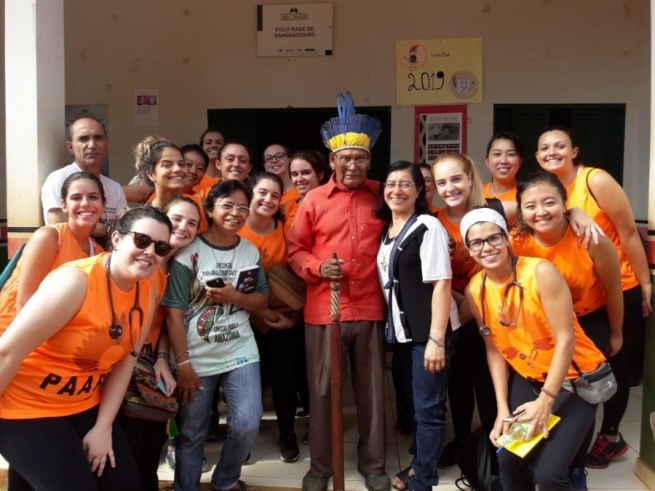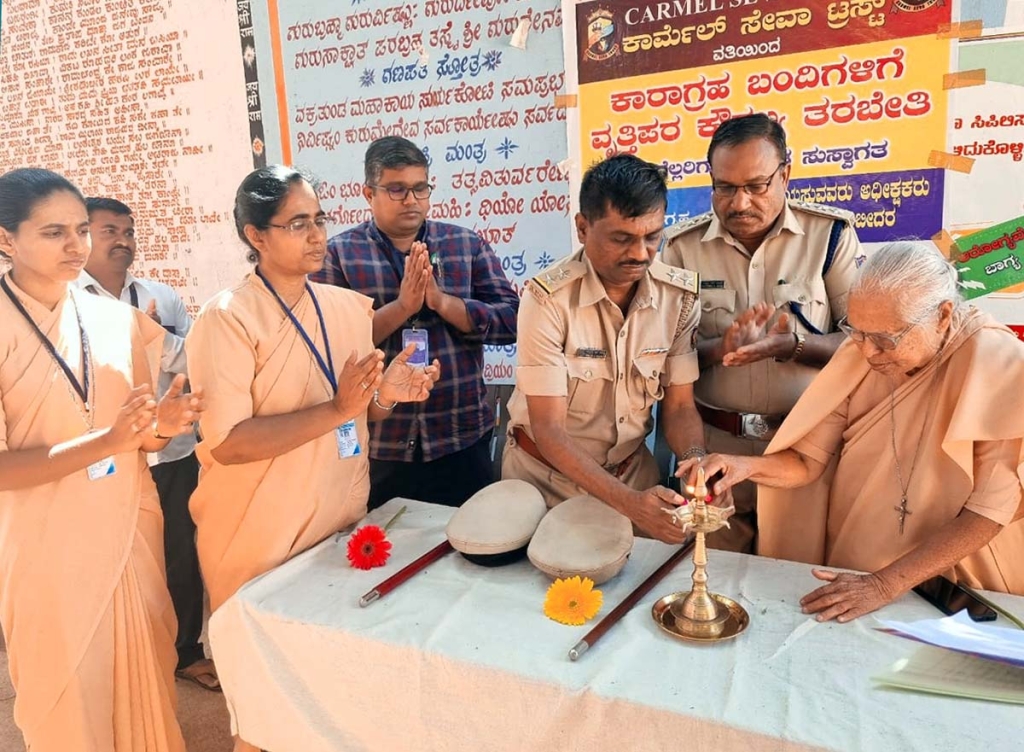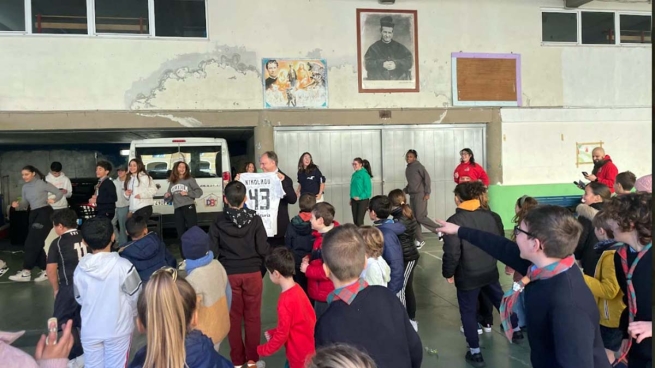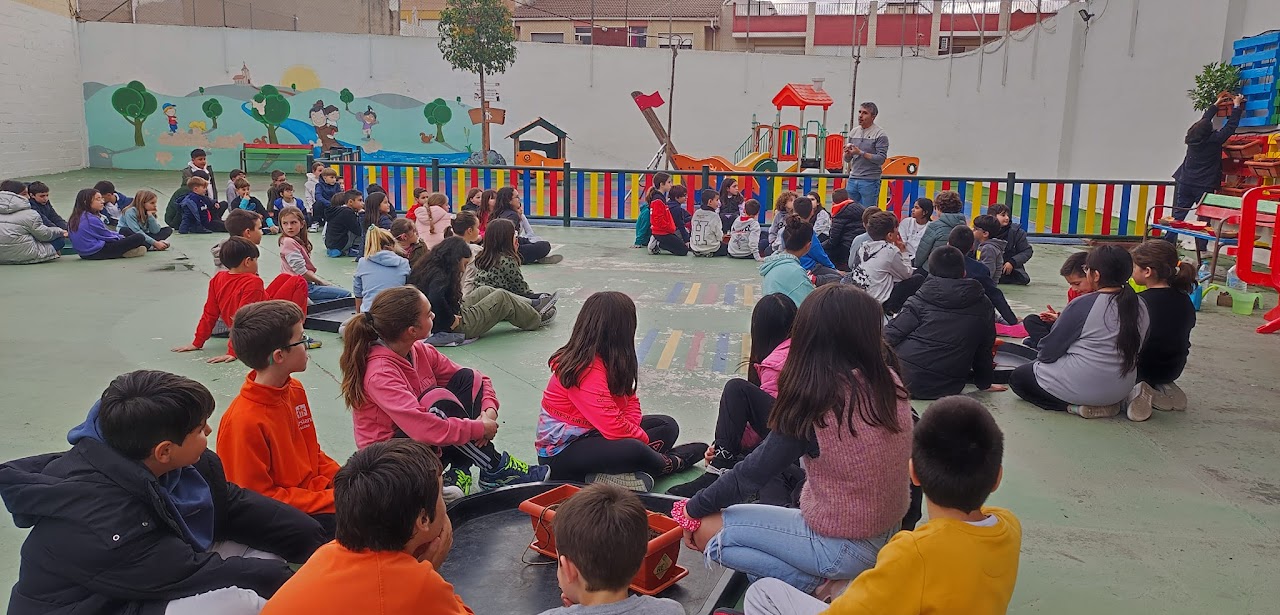BRAZIL: Medical students offer health clinics and prevention education in Salesian mission and surrounding villages

(MissionNewswire) Students from the School of Medical Sciences of Santos, located in the state of São Paulo, Brazil, recently completed the 10th medical trip for the Academic Project of Assistance to Indigenous Peoples (PAAPI). During the trip, 34 student volunteers held medical clinics from Jan. 15-25 at the local Salesian mission and in the surrounding villages of Meruri and Sangradouro in the state of Mato Grosso.
Established in 2009, PAAPI has been providing basic health care to indigenous people while collecting data on home visits and promoting preventive medicine. The student volunteers funded the recent trip themselves with revenue generated by promotions and events and were accompanied by Dr. Marcella Rolim, a Salesian past pupil. Together they set up a clinic in the villages to take care of the local population and talk to them about general health care and personal hygiene.
During the trip, about 7,000 medicines and 600 hygiene kits were delivered by volunteers to the two villages. In addition, pregnant women and children received vitamins and the doctor examined patients with specific medical problems.
“We made house visits in which we created a medical history and did physical examinations to all those who received care,” says Cindy Buchmann, a student who coordinates the project with her colleagues. “We asked them how they felt, if they had any pain, their personal clinical history, measured their blood pressure and recorded the blood sugar of diabetics and those who had diabetes-like symptoms.”
Buchmann added, “We also held conferences in the Salesian mission on diseases such as hypertension and diabetes, depression and alcoholism. Every day we also played with the children and offered a snack, after which they brushed their teeth with the hygiene kits we brought.”
This year for the first time, Dr. Rolim took part in the project as a specialized doctor. She had already been on a PAAPI trip in 2014 as a medical student during her fourth year of studies. She says, “I learned about the project thanks to faculty friends and I fell in love with it. When I arrived in the villages, I had another surprise. I was welcomed into a Salesian mission. A happy coincidence, because I had studied my whole life in a Salesian school and I was happy to be able to give back all the teachings and values that helped me in my formation and allowed me to get where I am today.”
According to Daniela Saad, one of the student volunteers, participants left knowing they were able to help and educate the indigenous people in the villages while also taking home a life lesson. She explains, “The project gives us 10 days to help the indigenous people of Mato Grosso in the best possible way, but the truth is that these few days are already enough to make us learn to give more value to our lives. What a lesson in life, gratitude and emotion.”
Salesian missionaries in Brazil provide education, workforce development and social services throughout the country and specifically focus on children with disabilities within several programs. Missionaries help to meet the basic needs of poor youth, including street children, and provide them with an education and life skills to gain employment, break the cycle of poverty and lead productive lives.
The World Bank estimates that about 28.6 million Brazilians moved out of poverty between 2004 and 2014. But from the start of 2016 to the end of 2017, the World Bank estimates that 2.5 million to 3.6 million have fallen back below the poverty line earning less than 140 Brazilian reais per month. Economists blame high unemployment, near 13 percent, and cuts to key social welfare programs for challenges in the country.
Issues of income inequality and social exclusion remain the root causes for those in poverty. Inequalities also exist in access to education and educational efficiency. These inequalities are greatest for children and youth who are poor, live in rural areas or who have an incomplete compulsory education. Salesians working with poor youth and their families in Brazil develop programs and provide youth with opportunities for furthering their education and skills.
###
Sources:
ANS Photo (usage permissions and guidelines must be requested from ANS)
ANS – Brazil – Celebrating ten years medical students offer missionary voluntary service
World Bank – Brazil




